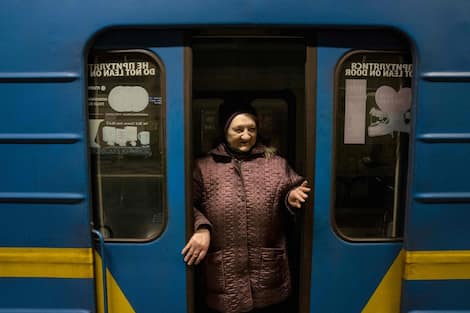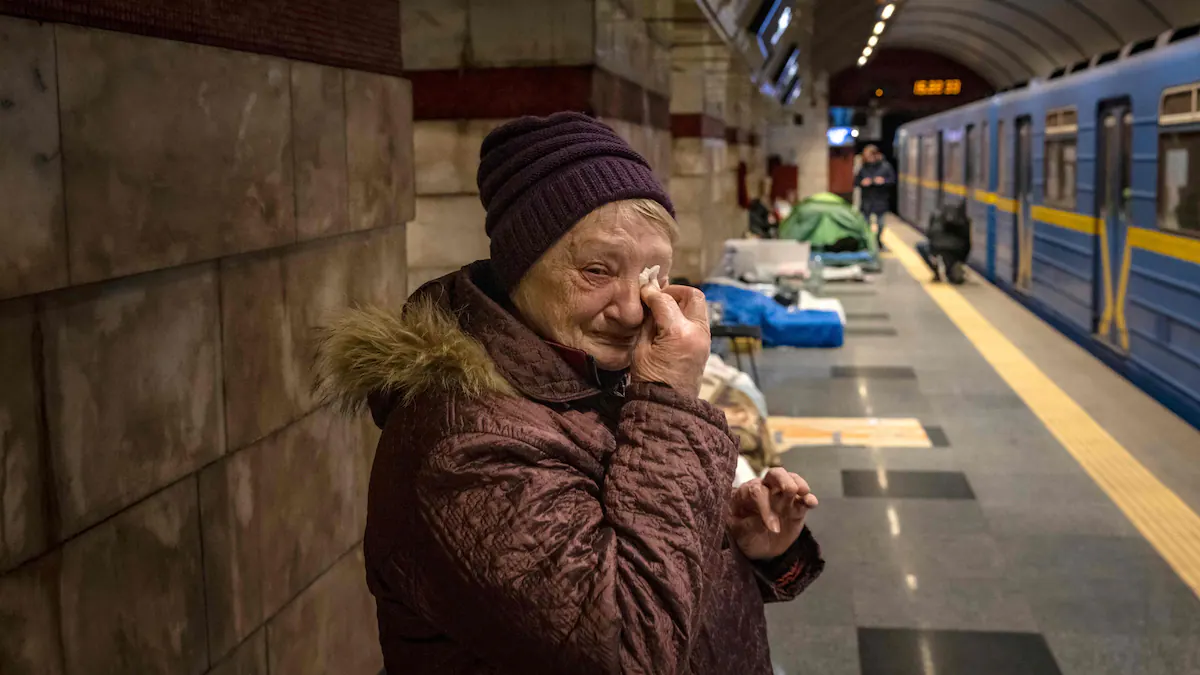Valentina Katkova, 77, does not know what makes her want to cry more: old age, illness or living in hiding in the Kyiv metro to escape from Russian bombs.
• Read also: Moldova, a poor country with a big heart
• Read also: Dozens of people were killed in the bombing of a military site
• Read also: direct | The twenty-fourth day of the Russian attack on Ukraine
Like Mrs. Katkova, about 200 people have taken refuge in the Serets metro station, in the northwest of the Ukrainian capital, which Russian forces are trying to encircle.
While most of these people sleep on blankets or mattresses on the platform floor, in the walkways or even in tents, Mrs. Katkova and other elderly people prefer the primitive comfort of metro trains, each with their own little corner.
Mrs. Katkova’s chairs consist entirely of three blue faux leather chairs on which a blanket has been laid. It is impossible to lie down without bending the legs. On the rim, a water bottle and a glass.
Red eyes with tears and a voice choked with tears, she explains that she has lived there “since February 24”, a date etched in her memory, the day Vladimir Putin launched his army into Ukraine.
His daughter, son-in-law and their two children spend their nights on the platform.
“And I, like old people, am here. It’s because I’ve had a stroke and a heart attack, so I’m here, sleeping in the car. And the youngest, the kids are right there, on the floor,” she says.

France Press agency
The Kyiv metro, which has some of the deepest stations in the world, now serves as an air raid shelter for thousands of the capital’s residents.
The circulation of trains continues on one track, while others welcome stationary trains that serve as temporary housing for refugees.
In this station, about sixty meters deep, life-like has been recreated. A television was installed that broadcasts the movie “Pirates of the Caribbean” that day. On a piece of paper lying on the floor, a colored pencil drawing depicts a tank with the Ukrainian flag on it and the following caption: “Glory to Ukraine.”
Nina Bedubna, 71, who lives in the carriage next to Ms. Katkova, explains that it has not been easy to get used to this new environment.
At first, “I felt so bad, I had a fever,” she says, her clear eyes shadowed by purple pockets. She even fainted once, but the subway workers took care of her.
Olena Gusseva, a 73-year-old woman with beautiful dimples, feels a thought that she has “never felt before.” “People are very welcoming and attentive to each other,” she said.
“The depth here allows you to be (safely),” says Ms. Gousseva.
So definitely, “humidity and weather conditions make you risk catching a cold,” she admits. “But you come anyway, because the most important thing is to be alive.”

“Extreme twitteraholic. Passionate travel nerd. Hardcore zombie trailblazer. Web fanatic. Evil bacon geek.”

